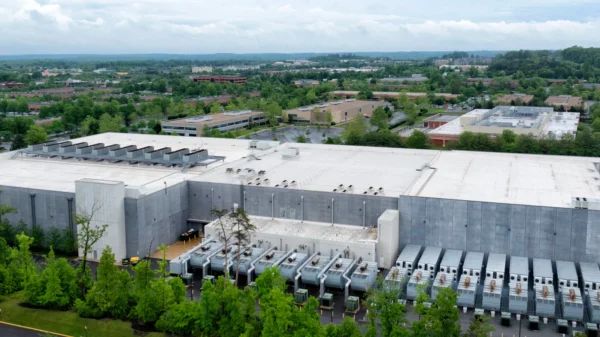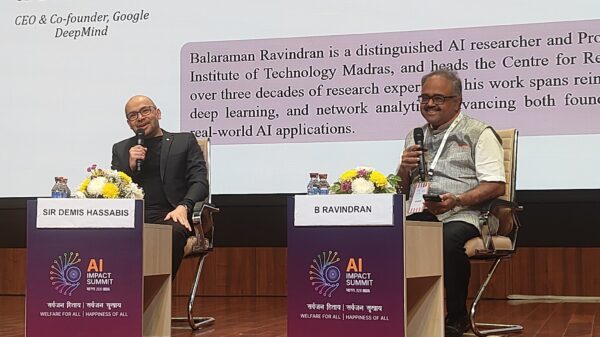A Hong Kong based startup is reshaping the fight against lung cancer with an artificial intelligence platform designed for early detection.
Announced on Friday, Caretia, a local health technology company, is applying deep learning and computer vision to improve the speed, accuracy, and accessibility of lung cancer screening. The company’s technology promises on Friday to detect cancerous nodules at earlier, more treatable stages, offering hope to millions worldwide.
Lung cancer remains one of the leading causes of cancer related deaths globally. Early detection is critical, yet current screening methods often miss subtle signs in their initial stages. Caretia’s AI system addresses this gap by analyzing low dose computed tomography (LDCT) scans, identifying nodules with high precision.
The platform originates from collaborative research conducted at The University of Hong Kong (UHK) and The Chinese University of Hong Kong (CUHK). Postgraduate students and recent graduates in medicine and computer science developed the system, combining academic rigour with practical expertise. Their work represents a notable leap in precision medicine, integrating AI into standard diagnostic workflows.
Caretia’s AI system leverages advanced deep learning models, likely based on architectures such as Convolutional Neural Networks (CNNs) like ResNet, Inception, or U-Net. These networks specialize in image recognition and segmentation tasks. Trained on vast datasets of anonymized LDCT scans, the system learns to detect subtle indicators of lung cancer, including nodule size, shape, density, and growth patterns.
Read more: Breath Diagnostics leaders promote their mission at Miami investment conference
Read more: Breath Diagnostics leader speaks at lung cancer education event in Louisville
The system reliable identifies lung cancer nodules
The LC-SHIELD study, a joint project involving CUHK, demonstrates the AI’s capabilities. Using an AI assisted software called LungSIGHT, researchers achieved sensitivity and negative predictive values exceeding 99 per cent.
This means the system reliably identifies cancerous nodules while minimizing false positives. Furthermore, the study found the AI could screen out around 60 per cent of cases without nodules, significantly reducing the workload for radiologists.
Experts note that the technology not only improves diagnostic accuracy but also helps address the shortage of skilled radiologists, particularly in underserved areas. In addition, its ability to handle large volumes of scans efficiently positions Caretia’s platform as a transformative tool in lung cancer screening.
The advancement carries broader implications for the AI healthcare sector.
Companies specializing in medical imaging, such as Siemens Healthineers, Philips, and GE HealthCare (NASDAQ: GEHC), could benefit from integrating Caretia’s platform into existing diagnostic equipment.
Major tech firms like Google, Microsoft (NASDAQ: MSFT), and Amazon (NASDAQ: AMZN), with significant investments in AI research and cloud infrastructure, may also find opportunities to support deployment.
There are also a number of startups looking to provide innovative options towards diagnosing lung cancer.
Kentucky based Breath Diagnostics Inc offers a unique approaching. Its OneBreath technology locates volatile organic compounds (VOC) from a single breath. This breath is analyzed using a technology called a microreactor, which uses AI algorithms, and pattern recognition to detect disease specific chemical signatures.
Read more: Breath Diagnostics tech achieves pneumonia prediction breakthrough in peer reviewed study
Read more: Breath Diagnostics opens Respiratory Innovation Summit with captivating presentation
Data privacy and security issues remain
The company works with charitable organizations to access region specific clinical data, improving accuracy for Hong Kong populations and other East Asian demographics.
Consequently, it can tailor its solutions to meet regional medical needs better than global competitors with generic models.
Caretia’s platform represents a significant step toward integrating AI into primary diagnostic roles. By detecting lung cancer earlier, the technology aligns with global trends in precision medicine, where treatment plans are informed by patient specific data. Earlier detection not only improves survival rates but can also reduce the financial burden on healthcare systems associated with late stage treatment.
Yet, challenges remain. Data privacy and security are critical, given the sensitive nature of medical information. Regulators must ensure the AI operates ethically and safely.
Furthermore, potential biases in training data could affect accuracy across diverse patient groups. Nevertheless, comparisons to prior AI milestones, such as breakthroughs in image recognition and natural language processing, highlight the rapid integration of AI into essential human services.
Caretia’s work is more than an incremental improvement; it represents a foundational shift in how AI can address complex medical problems.
The Hong Kong government has also shown strong support. In its 2024 Policy Address, the chief executive indicated AI assisted lung cancer screening as a national priority. Government backed testing programs at local universities provide a supportive ecosystem for technology adoption, potentially speeding up clinical deployment.
In the near term, Caretia aims to expand clinical trials and secure regulatory approvals. Integrating the platform into hospital information systems and electronic medical records (EMRs) will be essential for widespread use.
Read more: Breath Diagnostics gives the public the chance to join the fight against cancer
Read more: Breath Diagnostics pioneers novel lung cancer breath test
AI could predict individual lung cancer risk levels
Global regulatory approvals could follow, similar to FDA 510(k) clearances received by other AI based lung CT platforms. Once cleared, commercial adoption could grow rapidly, particularly in regions lacking sufficient radiology staff.
Furthermore, Caretia’s methodology has potential applications beyond lung cancer. Early detection of breast, colorectal, or pancreatic cancers could benefit from similar AI based imaging systems.
In addition, combining imaging data with genetic, proteomic, and clinical information could yield more precise diagnostics. AI could also predict individual risk levels, recommend personalized screening schedules, and help guide treatment decisions. These developments would create a more comprehensive diagnostic ecosystem, augmenting clinicians’ capabilities rather than replacing them.
However, adoption will require overcoming several barriers.
Healthcare providers need training, and reimbursement frameworks must support AI assisted diagnostics. Continuous model development ensures consistent performance across diverse populations and equipment.
Experts also expect growing attention to explainable AI (XAI) to provide transparency into the system’s decision making. Clinicians can trust and rely on the technology for critical decisions by understand its reasoning.
High sensitivity and predictive values achieved in studies mark a leap beyond traditional diagnostics. The platform shows how AI can provide accurate, efficient, and scalable solutions for life threatening conditions. In addition, the localized, academically backed approach demonstrates the importance of curated data and strenuous clinical validation.
In coming months, observers will monitor clinical trial results, regulatory approvals, and initial platform deployments.
.
joseph@mugglehead.com












